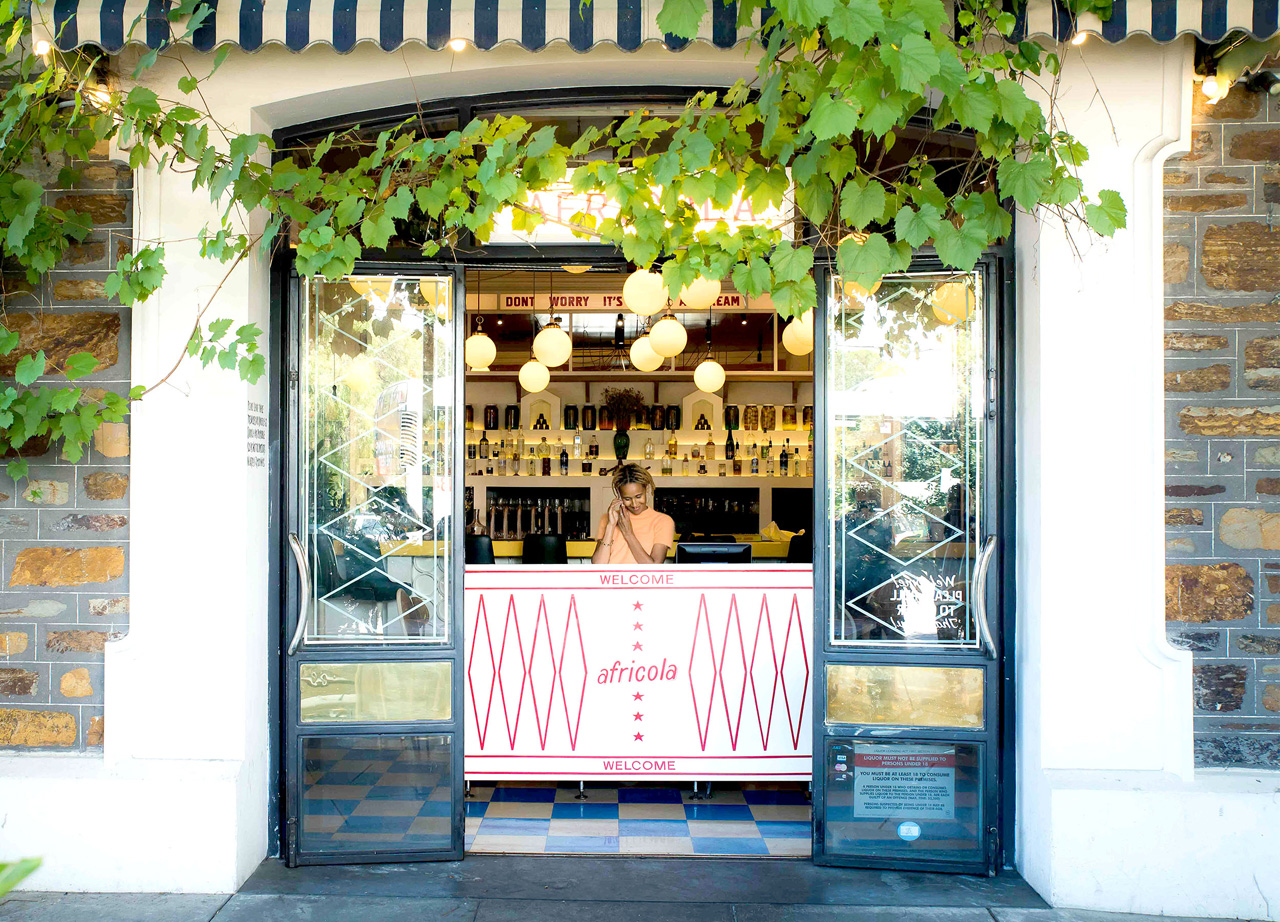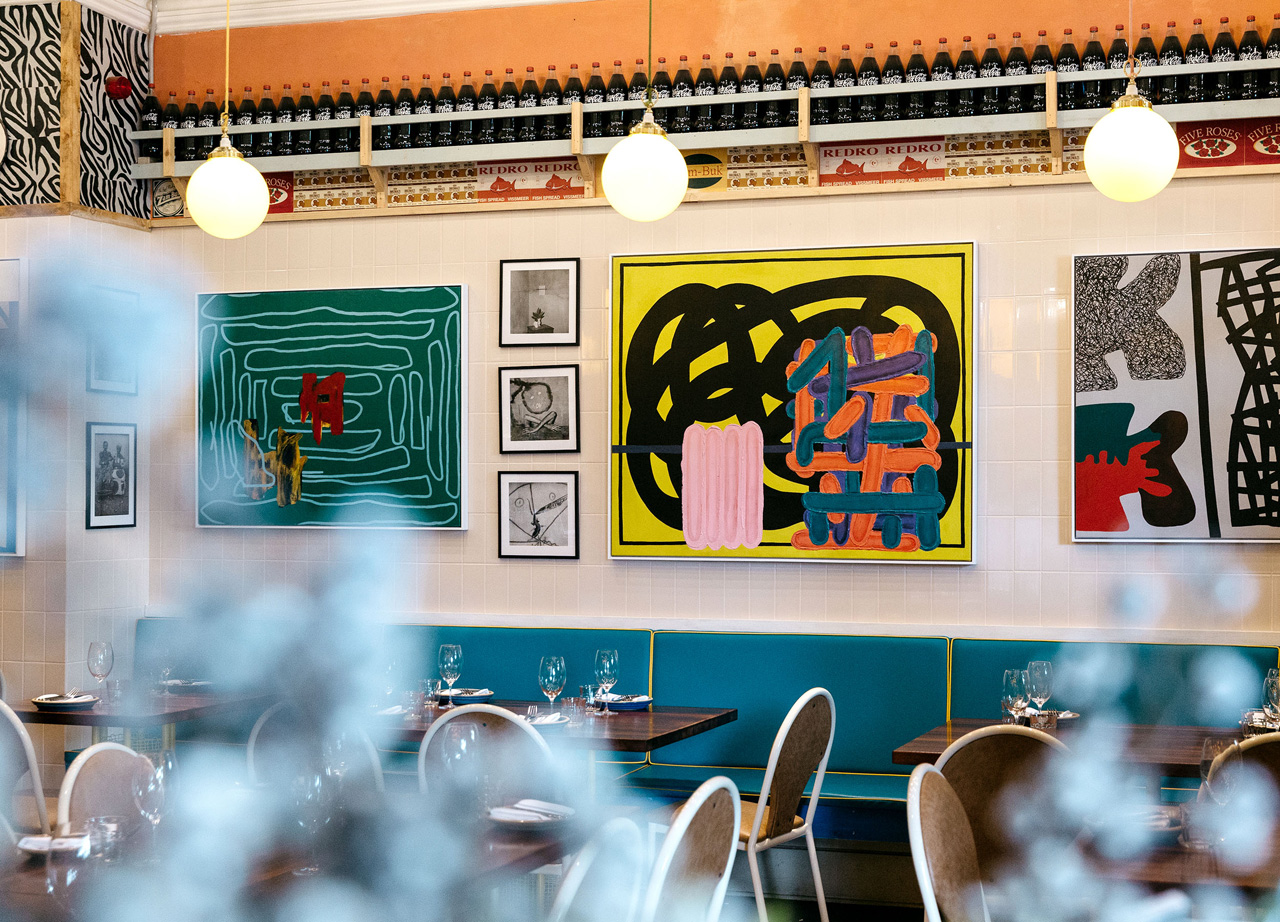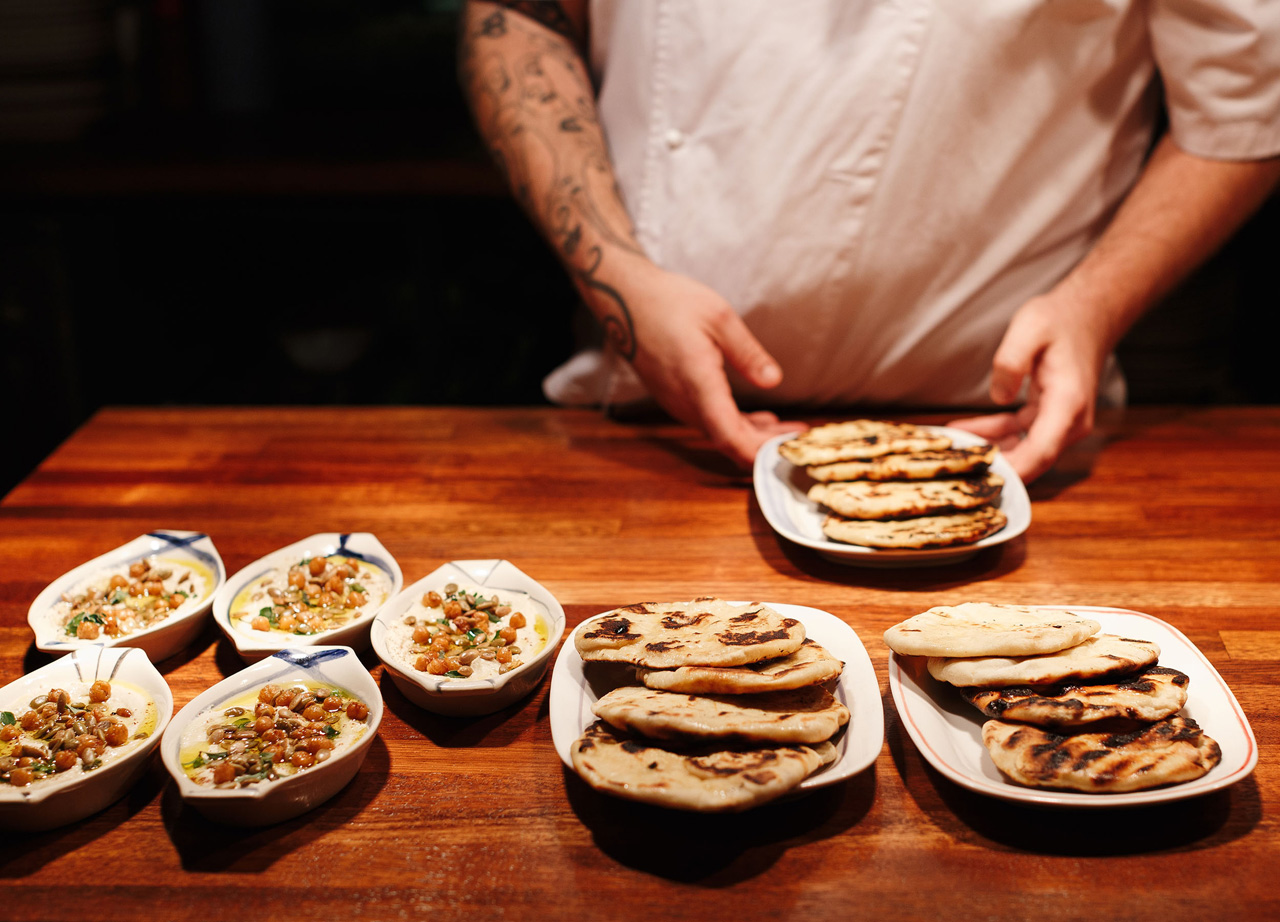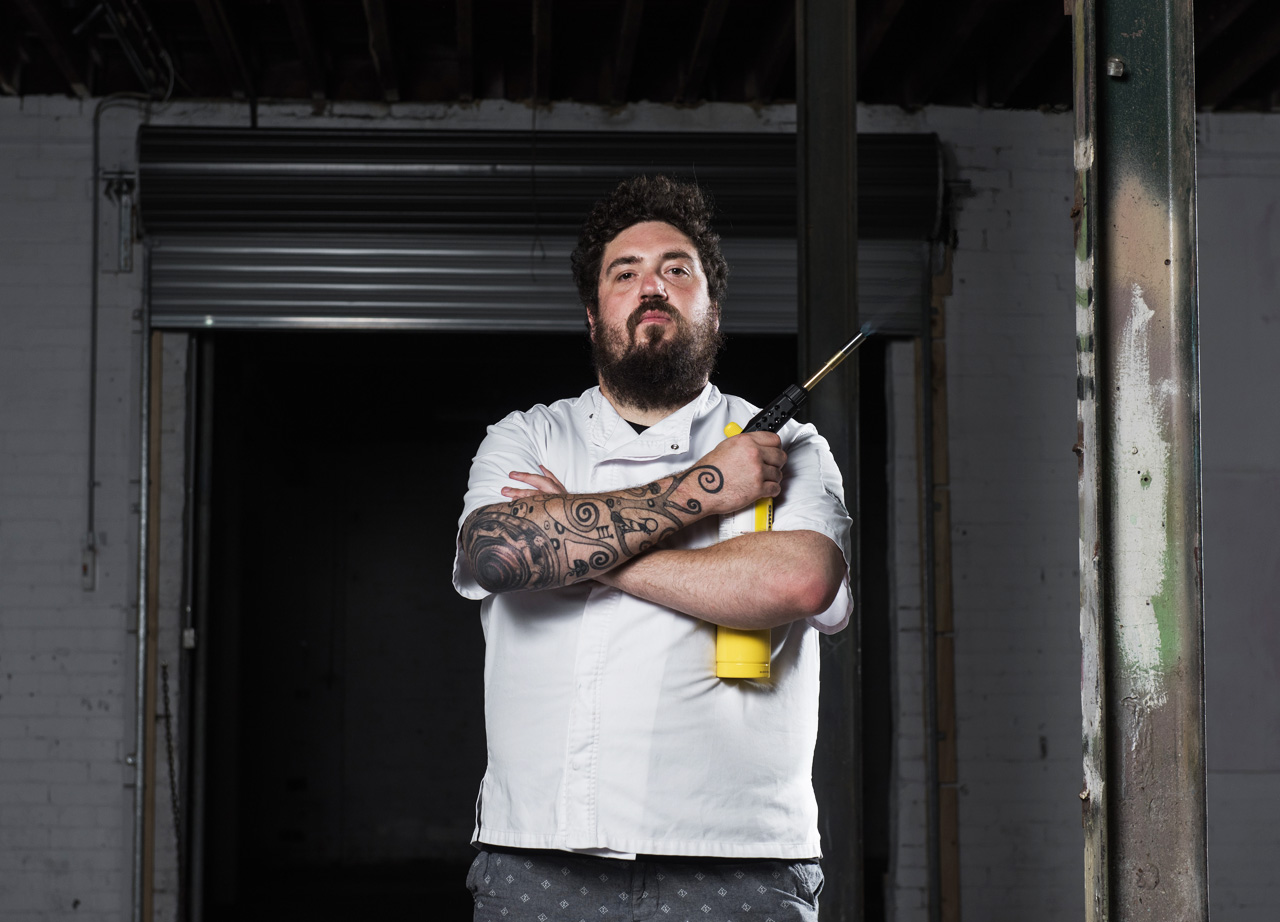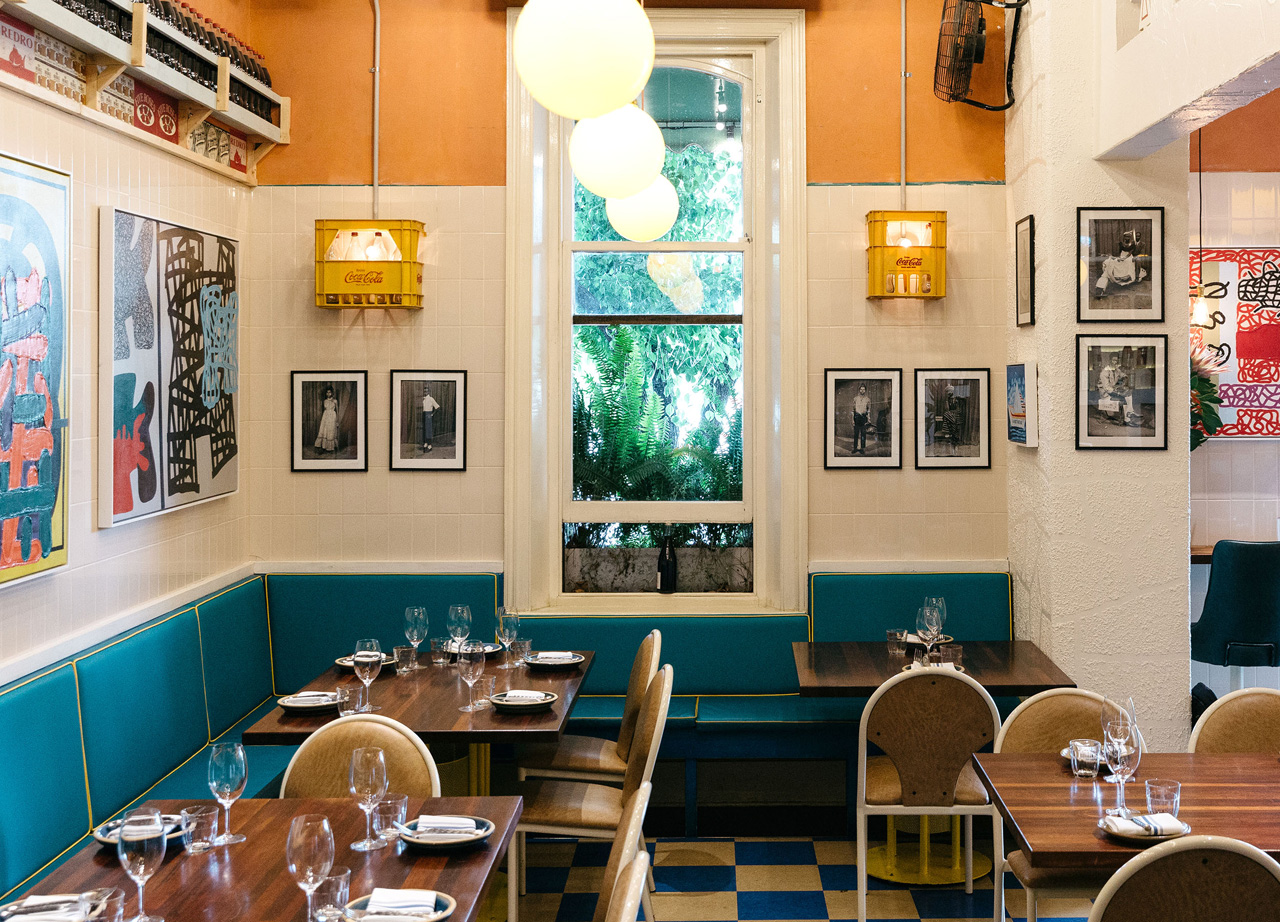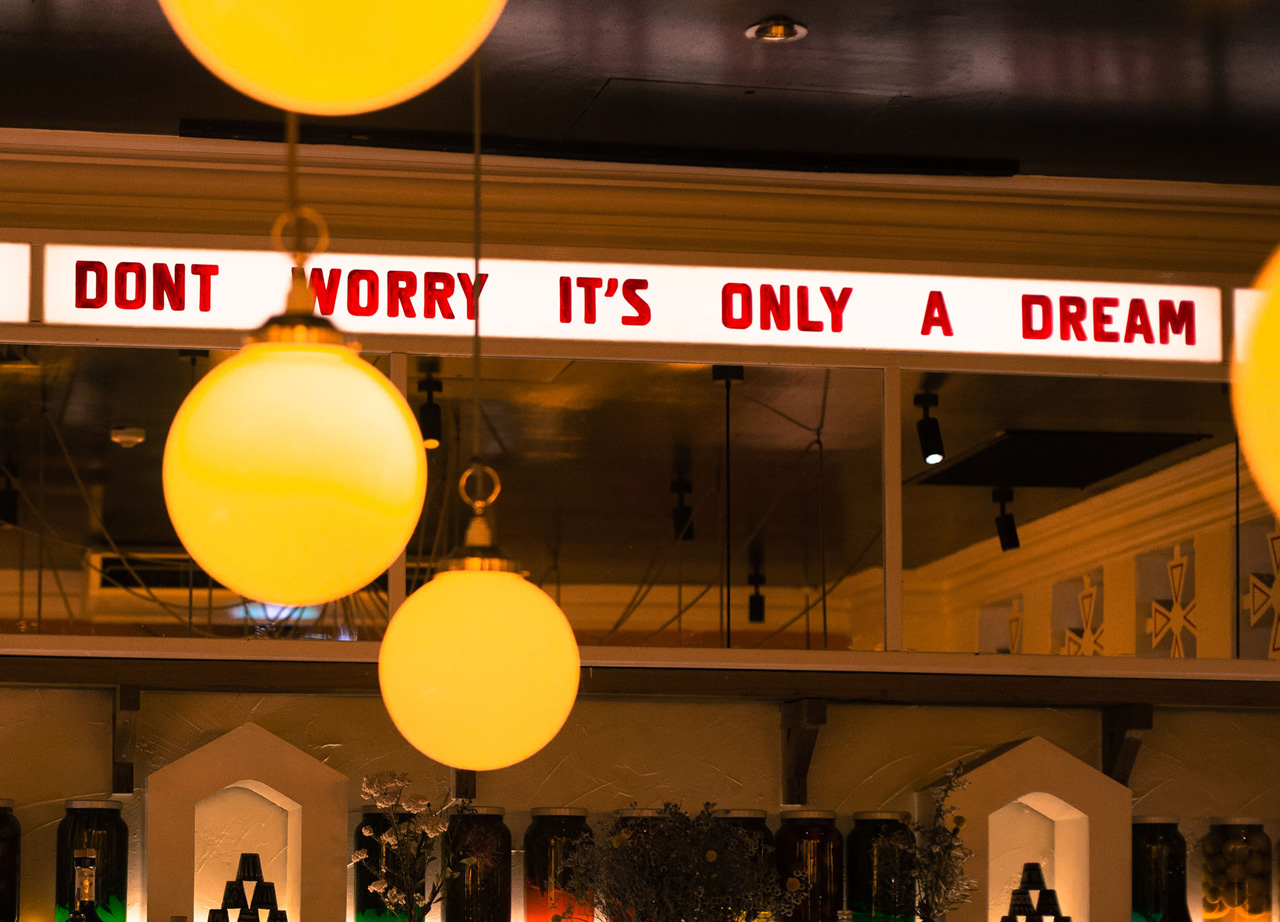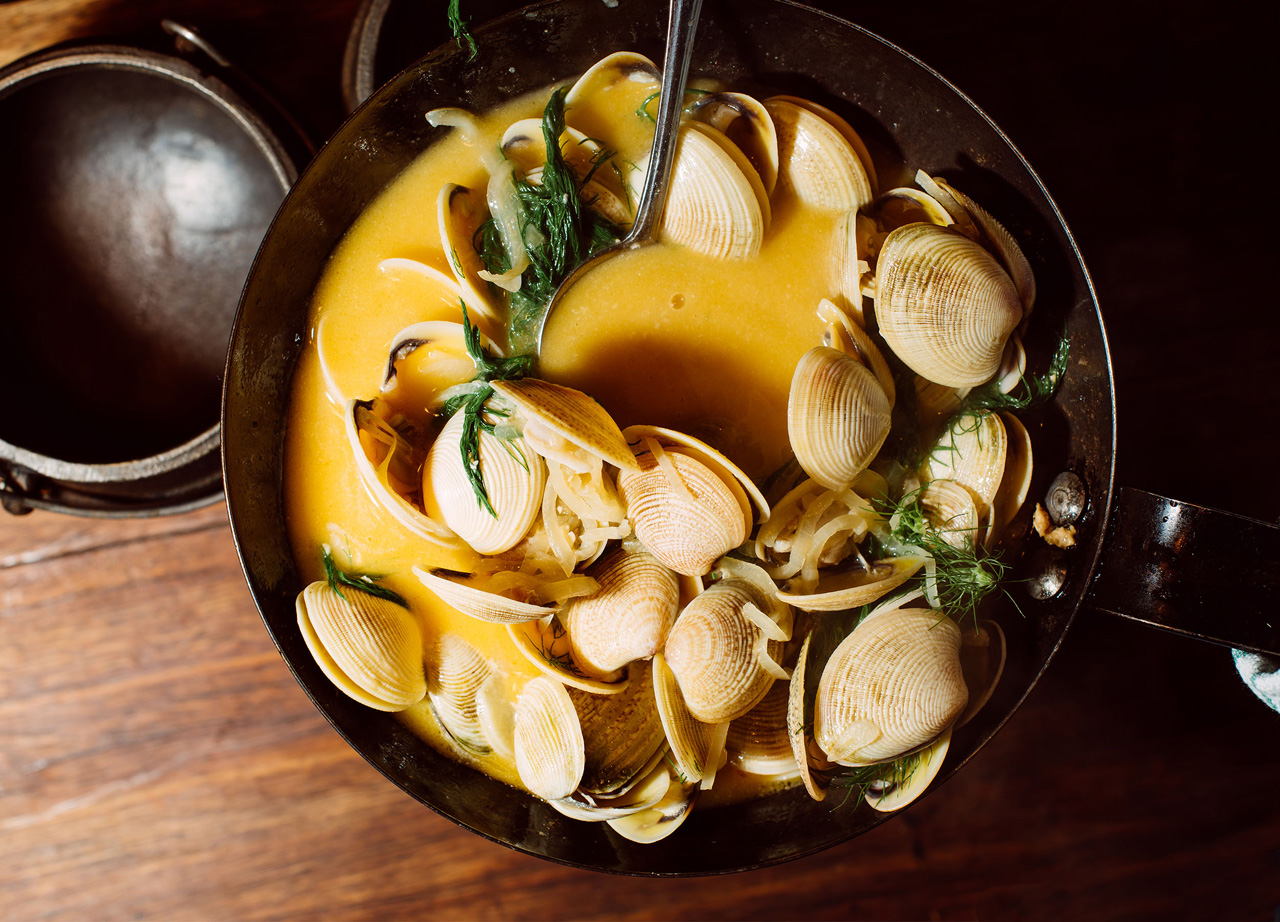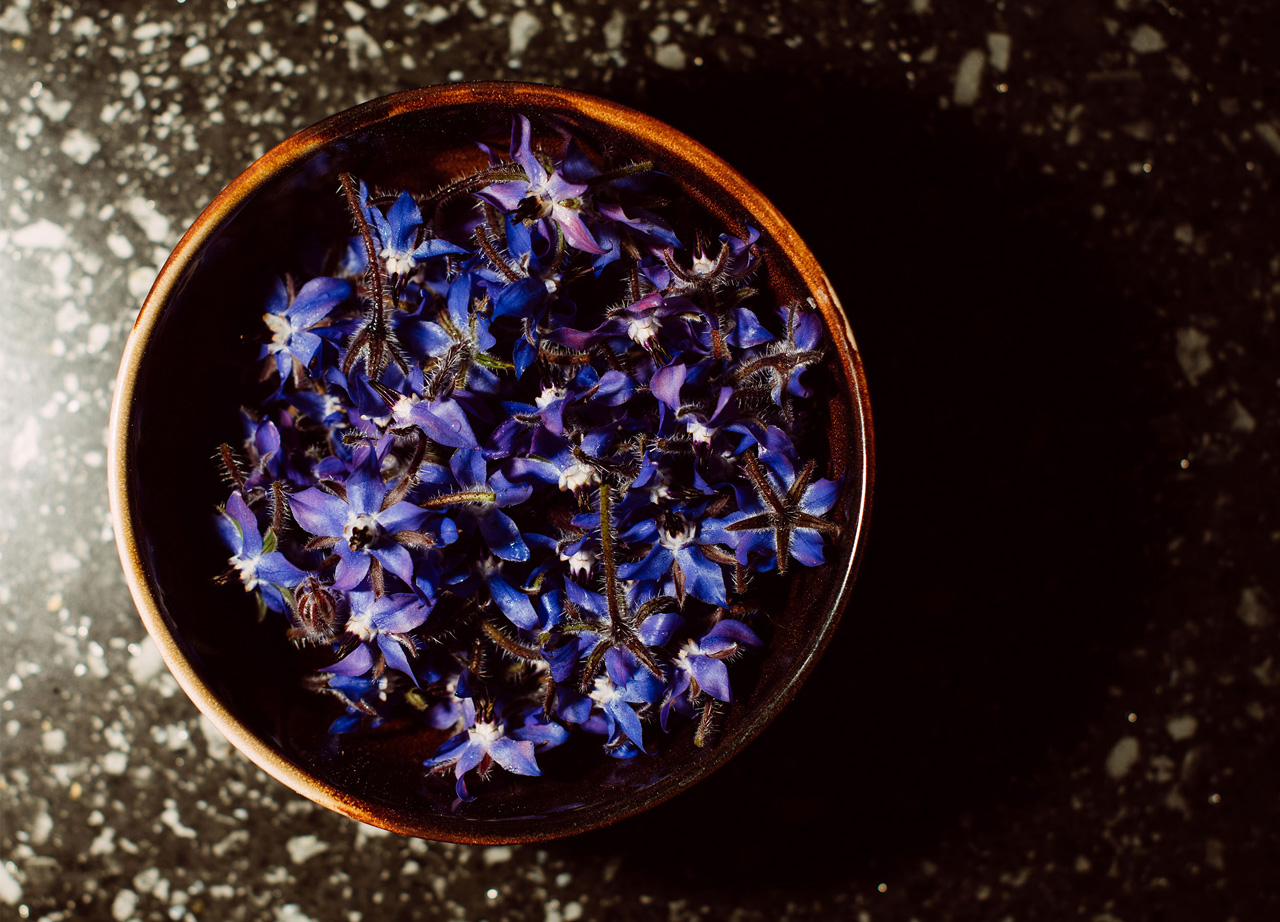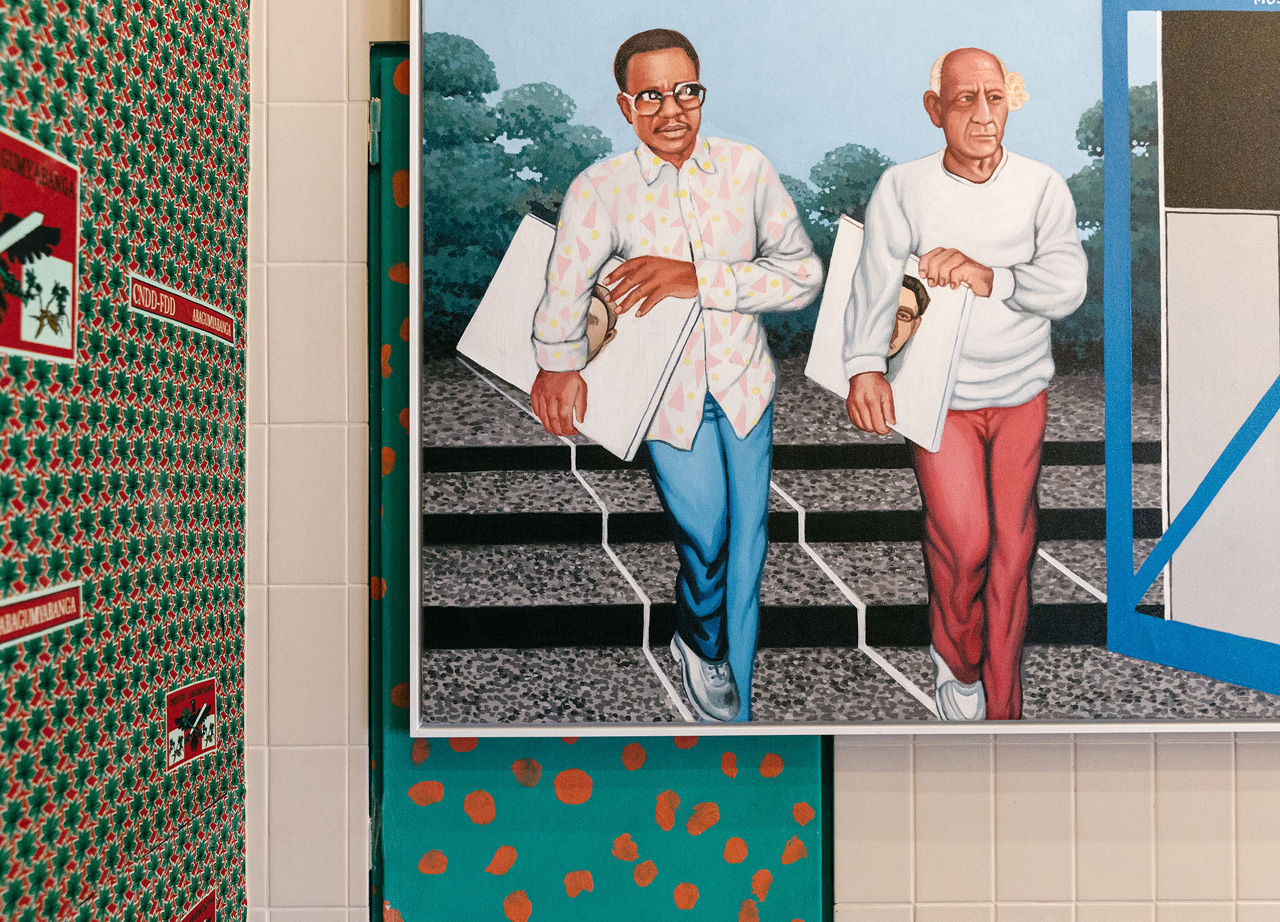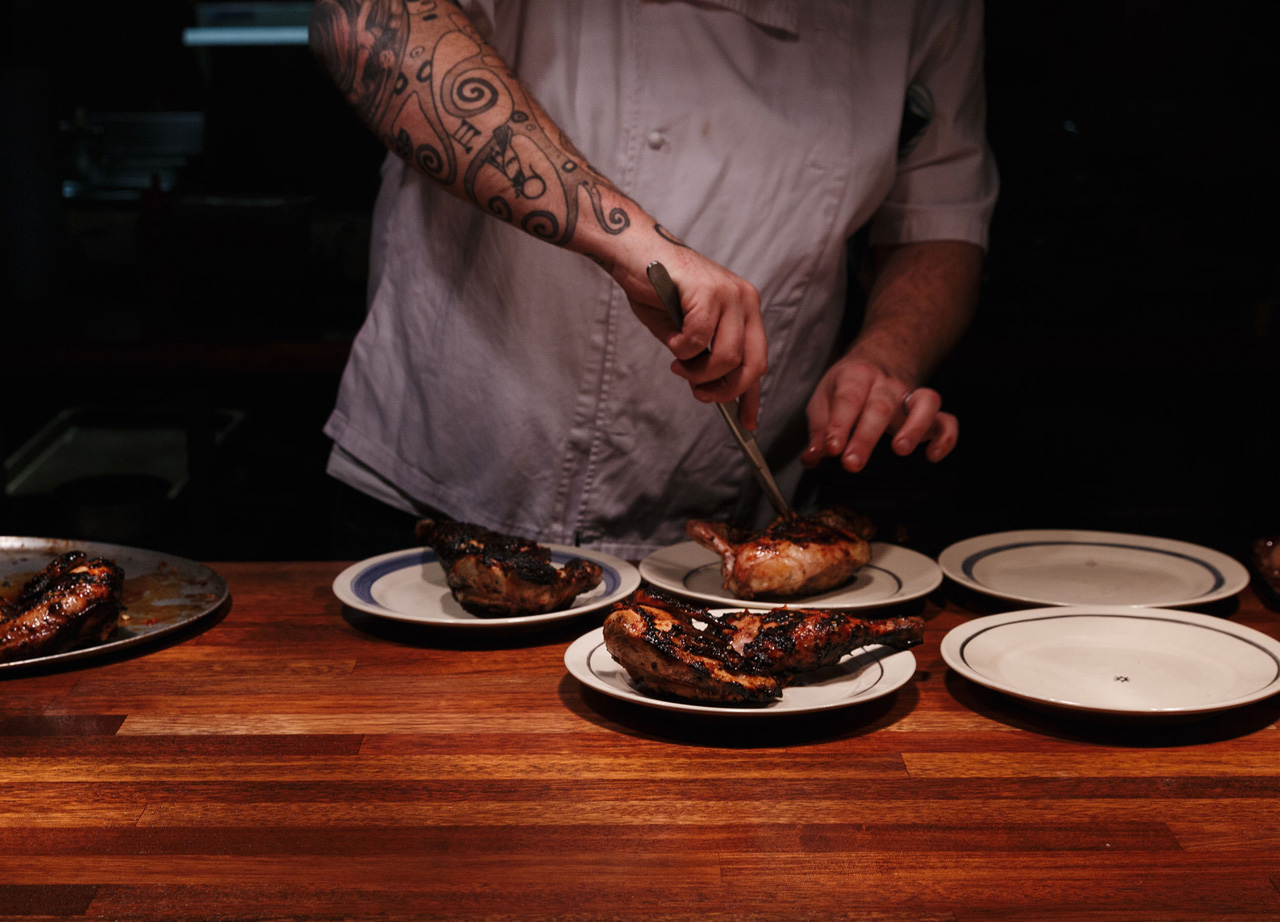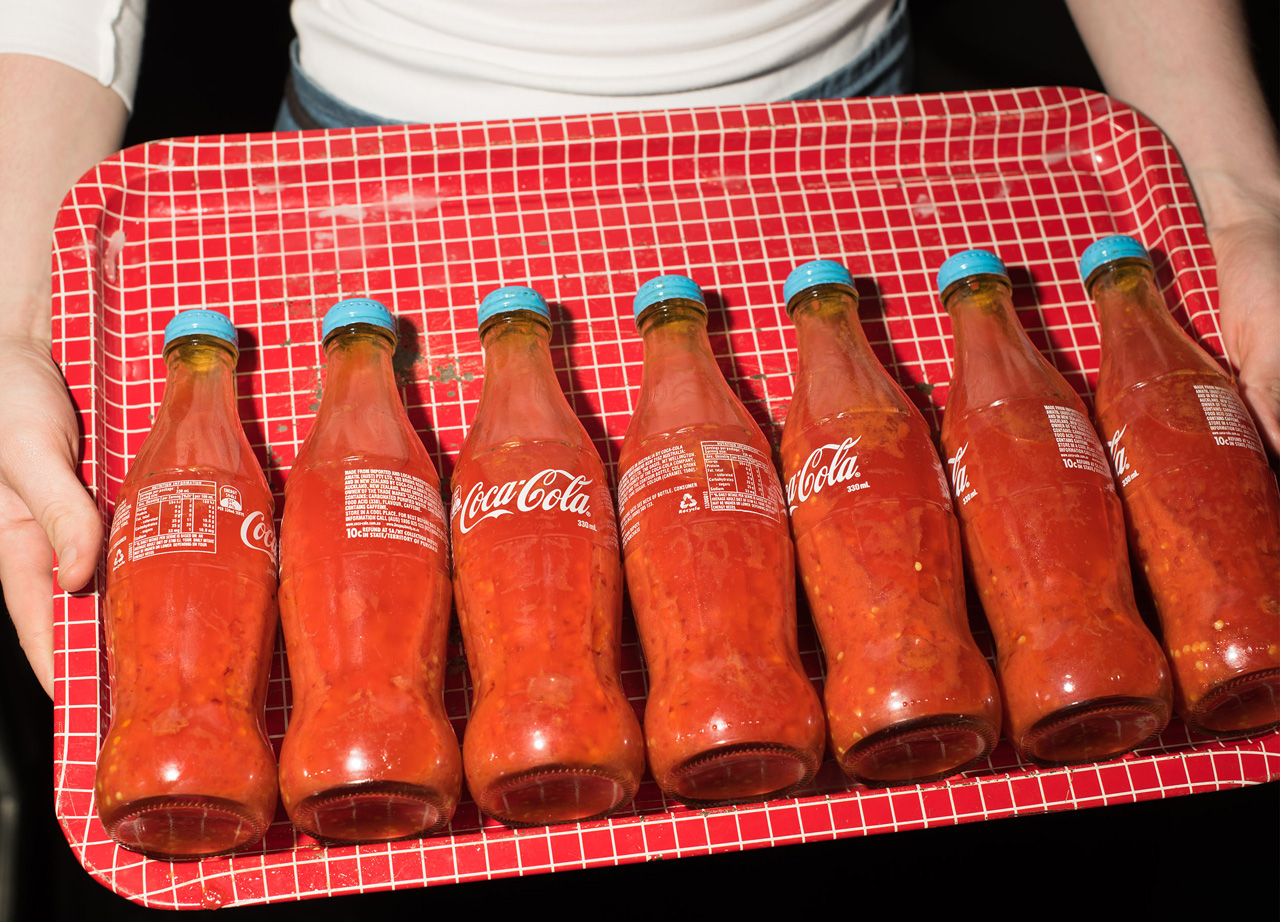News feed
If you can’t stand the heat, so goes the proverb, get out of the kitchen. But what if heat is your devotional metier, and it’s your kitchen that can’t handle the rising temperatures? In the case of Duncan Welgemoed, chef and co-owner of Adelaide restaurant Africola, you take the fire out of the kitchen.
In 2016, a minor fire in the restaurant’s – ironically, the state’s hottest – extraction system prompted Welgemoed and his business partner, the designer James Brown, to evolve their original concept. It was something that they had been intending to do all along, but hadn’t yet had the chance to do.
“Africola is a fast and interactive restaurant anyway, where we showcase a broad range of food and wine, predominantly African flavours,” Welgemoed recently told GRAZIA. The larger-than-life chef, South African-born but South Australia-residing since 2010, has won national acclaim for his inventive original restaurant’s concept inspired by the open fire braais and bars of his home country transposed onto an historic pub in central Adelaide. The small incident with the restaurant’s fire pit – the charcoal spit and wood oven, around which a great deal of the cooking that garnered Welgemoed many a ‘best restaurant’ and ‘hottest chef’ accolade – gave the chef the ashes from which he could fashion Africola’s rebirth and a refocus the restaurant’s attention on the continent’s north.
“We’re always shifting,” Welgemoed says of the pivot in focus toward a different style of African culture and cuisine. The shift was inevitable, and if anything, has been delayed by the restaurant’s phenomenal success. Africola has been so warmly embraced that the restaurant has not had a vacant booking during services in three years – an unbroken streak they’re looking to continue in 2018. “It’s part of what we do here anyway. It’s part of a constant evolution as we explore Africa, essentially. Instead of going from the South African braais, which is a direct flame cook, we went to North Africa, which accentuated those flavours in an indirect way. It’s a cleaner process. Because it is Maghreb cuisine [a region in north Africa that consists of Algeria, Morocco, Tunisia, Libya and Mauritania] the emphasis on vegetables in particular is very big.
“It’s working within that kind of ingredient palette,” he continues. “It opened up a new world for us, in terms of the spice trade, the slight Italian influence, the Palestinian influence and the Israeli Jewish influence in that particular cuisine. Obviously when you go from one completely different palette to another, just like an artist, your style is going to shift.”
This week’s Welgemoed’s attention will shift again in a new direction as he hosts Celsius, a series of eight pop-up dinners staged in Sydney. It’s a rare opportunity for Sydney diners to engage with Welgemoed’s style of cooking, albeit under entirely new circumstances. Billed as a world-first experience, the chef has crafted a three course menu that posits temperature as its square focus for both food and wine. Engaging with the diner is a central tenet of the Africola experience, and at Celsius, Welgemoed likewise aims to bring something unexpected to the diner’s experience – something he considers to often be lacking from lacklustre pop-ups. “That’s always been our thing; that ‘wow’ factor of a experience,” he says. “We generally bring the noise to that in a very big way.”
Considering the buzz surrounding Welgemoed, his restaurant and the methods of cooking on which he made his considerable name, it’s only apt that he should have been enlisted for this experience. Don’t, however, come to the table prepared for “a sensory experience [that is just] ‘here is a cold dish, here is a hot dish’.” The chef says he will be playing around with intense heat in certain dishes or contributing a smoke element “and that whole fire and ice aspect, but not in usual ways which works brilliantly with the wine concept and the temperature variance of the bottles.”
That means a dish of shio koji – a Japanese seasoning – kingfish will be blow torched on the pass to impart caramelised umami flavours; it’ll be served with an acidic white with residual sugar to meld hot and cold. Likewise, a barbecue beef dish with powerful flavours will be served with a chilled red – an idea that for many still (mistakenly) invokes a sense of cultural cringe. “It’s what people expect from an Australian barbecue, [the] way of chilling a red wine,” says Welgemoed, who adds that the majority of the red wine that he drinks comes chilled from the fridge. “I thought [chilling reds] was kind of sacrilegious when I was younger and being pretentious, working in France and England and having my parents in South Africa chuck a couple of ice cubes into their red,” the chef recalls. “The older I get, the less fucks I give, I suppose. I just like to drink things how they should be drunk and not how it’s ‘supposed’ to be drunk, for myself.”
It’s not surprising to hear Welgemoed has a health disregard for tradition. Which is not to say he’s disdainful or at all disrespectful. I met Welgemoed briefly last year at the tail end of an interview with the revered cheffing legend, Marco Pierre White, who – despite White’s protestations – Welgemoed would not call anything other than ‘chef’ out of respect. Welgemoed trained under both Heston Blumenthal and Gordon Ramsay – both of whom are former protégés of White himself, and who both inherited the mantle of ‘rock star chef’ from the original enfant terrible of the London food scene. That it’s now possible to trace White’s impact across generations of chefs at the top of the game across the other side of the world in Adelaide is nothing less than extraordinary. Africola, White told me, just so happens to be one of his favourite Australia restaurants to boot.
“My ethos is that I’ve always wanted to create a restaurant that was always bigger than any one person in our team,” says Welgemoed. “We all have that one goal. Our work does not only stay within the four walls of our restaurant. We constantly [take on] other projects that interest and challenge us – we push ourselves in that respect; we never play the safe game, ever. We really excel outside of our comfort zone.
“Our focus is really showcasing the best product in our state [while] having super fun and offending a whole bunch of people while doing it.”
The Celsius dinners begin February 7 and will run until February 10 with two sittings taking place each night at 6pm and 8pm at COMMUNE in Waterloo. Tickets are $99 each, including a three course set menu with matching wines from Taylors, as well as a FLIR ONE thermal imaging device for use over the course of the evening. More information and bookings are available here.
Tile and cover image: Courtesy of Africola





